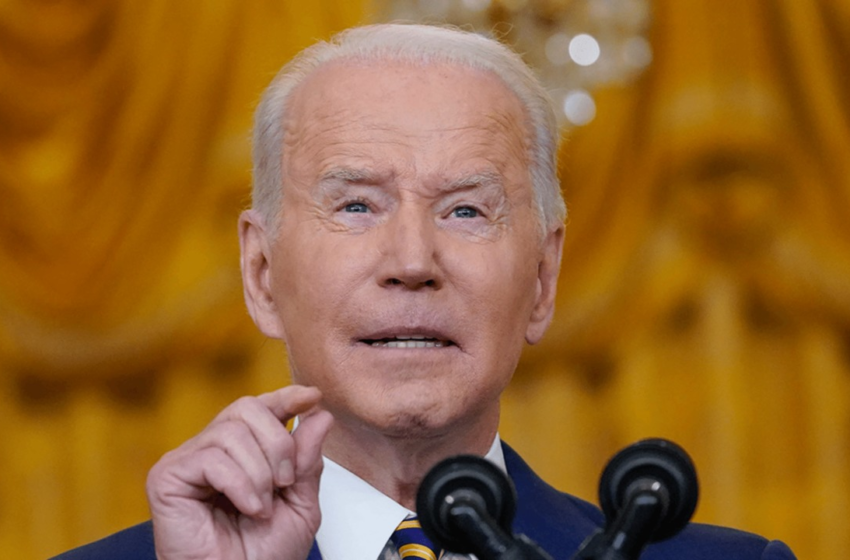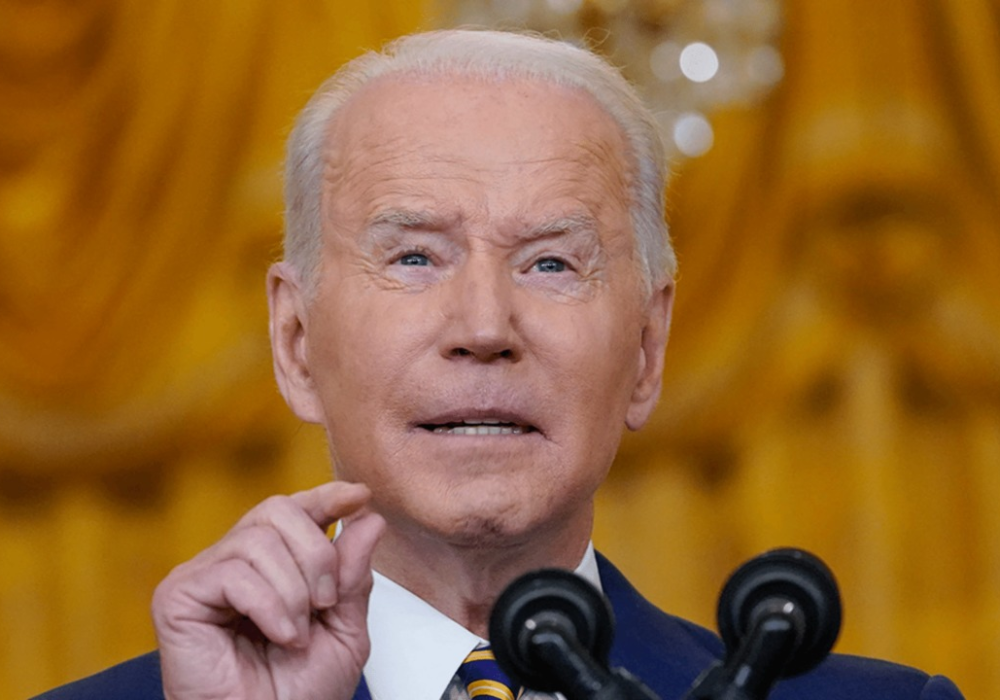But, in total, the event was notable for the contrasts it set to his prior months in office. Biden had held only one other solo press conference at the White House during his presidency. For this one, he spoke longer than his two immediate predecessors had done at any press conference of their own. Biden had not publicly conceded that his Build Back Better agenda would need a dramatic revamping. On Wednesday, he talked about rescuing chunks of it.
Most notably, Biden had been bullish about getting Republicans to support his agenda, insisting they’d have an epiphany in the post-Donald Trump era. In front of the White House press corp, he implied that his optimism had been misplaced.
“One thing I haven’t been able to do so far is get my Republican friends to get in the game of making things better in this country,” Biden acknowledged.
Wednesday’s press conference marked the one year anniversary of his entering the Oval Office. And, for the occasion, Biden tried to explain his legislative strategy and decisions to combat the mutating coronavirus, while recognizing voters’ criticisms and frustrations. In taking questions for an hour and 51 minutes, Biden also sought to implicitly demonstrate stamina and fight the caricature of himself propagated by right-wing media. His aides seemed to delight in the coverage of how long the press conference went.
Asked right off the bat if his administration had over promised what it could accomplish to Americans, the president responded, “I didn’t overpromise. I have probably outperformed what anybody thought would happen…and I’m going to stay on this track.”
With persistently low approval ratings, Biden acknowledged both tactical and operational missteps. He said that he needs to get out of Washington, D.C. more to meet frustrated voters where they live and on their issues. He also conceded that there should have been more coronavirus tests available earlier during the current Omicron wave. But Biden also touted the work he and his team had done on the pandemic — from passing a massive relief package to standing up a comprehensive vaccine program. And, on his social spending agenda, he said it remains “realistic” that components will pass, chiefly the more than $500 billion to combat climate change and funds for early education.
“I think we can break the package up, get as much as we can now, come back and fight for the rest later,” Biden said. But he also admitted that there are some pieces he thinks Democrats will have to wait on.
“There’s two really big components that I feel strongly about that I’m not sure I can get in the package,” Biden said. “One is the child care tax credit and the other is help for the cost of community colleges.”
At the heart of Biden’s press conference was a frustration he said he felt with the political opposition he faced. The president campaigned for office pledging that his style of governance would help defuse partisan bickering — despite repeated warnings from those in his party that such a prediction was political fantasy. While Biden scored a major bipartisan victory with the passage of infrastructure reform, he admitted on Wednesday that staunch GOP opposition to his presidency had caught him off guard. He argued that the opposition was worse than what his former boss, President Barack Obama, faced while in office.
“I did not anticipate that there would be such a stalwart effort to make sure that the most important thing was that President Biden didn’t get anything done,” Biden said. “Think about this: What are Republicans for? What are they for?”
Biden said he personally likes Senate Minority Leader Mitch McConnell but again asked what McConnell’s proposals are on immigration and other policies currently being debated. When asked about electoral reform, Biden said he predicted Congress could get something done. A small group of bipartisan senators have met in recent weeks to discuss changes to the Electoral Count Act, which sets the process of the certification of presidential election results, and other voting measures.
But Biden said he believed it was his job to lay out, in stark terms, the threats to democracy facing the country. At one point, he said the 2022 midterms could “easily be illegitimate” if Trump loyalists running for positions overseeing the election process were able to use those positions to effectively nullify results.
“Imagine if those attempts to say that the count was not legit, you have to recount it and we’re going to discard the following votes” succeed, Biden posited. “The increase and the prospect of being illegitimate is in direct proportion to us not being able to get these reforms passed. But you’re not going to see me and I don’t think you’re going to see the Democratic party give up.”
Biden’s press conference came as Senate Democrats were heading toward a failed vote on reviving the talking filibuster as a pathway to pass voting and elections legislation. Despite the clear blockades put up by two senators in his party to two major agenda items, Biden refrained from directly attacking those in his party. But he made no apologies for his forcefulness across two speeches this month when asking lawmakers what legacy they wanted to leave behind — one like Martin Luther King Jr. and the late congressman John Lewis (D-Ga.) or segregationists Bull Connor and George Wallace. Both speeches drew Republican condemnations despite near unanimous GOP opposition to voting rights legislation being considered in Congress and many Republicans’ perpetuating Trump’s lies about election fraud.
“There are certain things that are so consequential that you have to speak from your heart and your head,” Biden said, his tone rising during one brief flash of frustration in the long press conference. “No one forgets who was on the side of King or Bull Connor. The history books will note it. I was making the case: don’t think this is a freebie. You don’t get to vote this way and somehow it goes away, this will stick with you the rest of your career.”










